Nori Porcine CD73 ELISA Kit
$461.00 – $832.00
This ELISA kit is for quantification of CD73 in pig. This is a quick ELISA assay that reduces time to 50% compared to the conventional method, and the entire assay only takes 3 hours. This assay employs the quantitative sandwich enzyme immunoassay technique and uses biotin-streptavidin chemistry to improve the performance of the assays. An antibody specific for CD73 has been pre-coated onto a microplate. Standards and samples are pipetted into the wells and any CD73 present is bound by the immobilized antibody. After washing away any unbound substances, a detection antibody specific for CD73 is added to the wells. Following wash to remove any unbound antibody reagent, a detection reagent is added. After intensive wash a substrate solution is added to the wells and color develops in proportion to the amount of CD73 bound in the initial step. The color development is stopped, and the intensity of the color is measured.
Alternative names for CD73: Cluster of Differentiation 73, NT5E, 5′-nucleotidase (5′-NT),
This product is for Laboratory Research Use Only not for diagnostic and therapeutic purposes or any other purposes.
- Description
- How Elisa Works
- Product Citation (0)
- Reviews (0)
Description
Nori Porcine CD73 ELISA Kit Summary
Alternative names for CD73: Cluster of Differentiation 73, NT5E, 5′-nucleotidase (5′-NT),
Alternative names for porcine: pig, swine
| Assay Type | Solid Phase Sandwich ELISA |
| Format | 96-well Microplate or 96-Well Strip Microplate |
| Method of Detection | Colorimetric |
| Number of Targets Detected | 1 |
| Target Antigen Accession Number | K7GSR6 |
| Assay Length | 3 hours |
| Quantitative/Semiquantitative | Quantitative |
| Sample Type | Plasma, Serum, Cell Culture, Urine, Cell/Tissue Lysates, Synovial Fluid, BAL, |
| Recommended Sample Dilution (Plasma/Serum) | No dilution for sample <ULOQ; sufficient dilution for samples >ULOQ |
| Sensitivity | 12 pg/mL |
| Detection Range | 62.5-4000 pg/mL |
| Specificity | Porcine CD73 |
| Cross-Reactivity | < 0.5% cross-reactivity observed with available related molecules, < 50% cross-species reactivity observed with species tested. |
| Interference | No significant interference observed with available related molecules |
| Storage/Stability | 4 ºC for up to 6 months |
| Usage | For Laboratory Research Use Only. Not for diagnostic or therapeutic use. |
| Additional Notes | The kit allows for use in multiple experiments. |
Standard Curve
Kit Components
1. Pre-coated 96-well Microplate
2. Biotinylated Detection Antibody
3. Streptavidin-HRP Conjugate
4. Lyophilized Standards
5. TMB One-Step Substrate
6. Stop Solution
7. 20 x PBS
8. Assay Buffer
Other Materials Required but not Provided:
1. Microplate Reader capable of measuring absorption at 450 nm
2. Log-log graph paper or computer and software for ELISA data analysis
3. Precision pipettes (1-1000 µl)
4. Multi-channel pipettes (300 µl)
5. Distilled or deionized water
Protocol Outline
1. Prepare all reagents, samples and standards as instructed in the datasheet.
2. Add 100 µl of Standard or samples to each well and incubate 1 h at RT.
3. Add 100 µl of Working Detection Antibody to each well and incubate 1 h at RT.
4. Add 100 µl of Working Streptavidin-HRP to each well and incubate 20 min at RT.
5. Add 100 µl of Substrate to each well and incubate 5-30 min at RT.
6. Add 50 µl of Stop Solution to each well and read at 450 nm immediately.
Background:
5′-nucleotidase (5′-NT), also known as ecto-5′-nucleotidase or CD73 (cluster of differentiation 73), is an enzyme that in humans is encoded by the NT5E gene.[1] CD73 commonly serves to convert AMP to adenosine. Ecto-5-prime-nucleotidase (5-prime-ribonucleotide phosphohydrolase; EC 3.1.3.5) catalyzes the conversion at neutral pH of purine 5-prime mononucleotides to nucleosides, the preferred substrate being AMP. The enzyme consists of a dimer of 2 identical 70-kD subunits bound by a glycosyl phosphatidyl inositol linkage to the external face of the plasma membrane. The enzyme is used as a marker of lymphocyte differentiation. Consequently, a deficiency of NT5 occurs in a variety of immunodeficiency diseases (e.g., see MIM 102700, MIM 300300). Other forms of 5-prime nucleotidase exist in the cytoplasm and lysosomes and can be distinguished from ecto-NT5 by their substrate affinities, requirement for divalent magnesium ion, activation by ATP, and inhibition by inorganic phosphate. Rare allelic variants are associated with a syndrome of adult-onset calcification of joints and arteries (CALJA) affecting the iliac, femoral, and tibial arteries reducing circulation in the legs and the joints of the hands and feet causing pain.[2][3] Oxidized low-density lipoproteins enhance expression and activity of CD39 and CD73 in the human aortic valve endothelium.[4] in septic critically ill patients the soluble CD73 levels were generally low and showed a further decrease from 0h to 24h. Moreover, the sCD73 levels were higher in acute kidney injury (AKI) versus non-AKI patients and in non-survivors with severe sepsis than in survivors, but were not independently associated either with the development of AKI or 90-day mortal. [5]
References
- Misumi Y, et al. (1990). European Journal of Biochemistry. 191 (3): 563–9.
- St Hilaire C, et al. (2011). The New England Journal of Medicine. 364 (5): 432–42.
- Sharp J (1954). Annals of the Rheumatic Diseases. 13 (1): 15–27.
- Kaniewska-Bednarczuk E, et al. (2016) Nucleosides Nucleotides Nucleic Acids 35 (10-12), 713-719.
- Vaara ST, et al. (2016) PLoS ONE 11 (10), E0164420.
Be the first to review “Nori Porcine CD73 ELISA Kit”
You must be logged in to post a review.
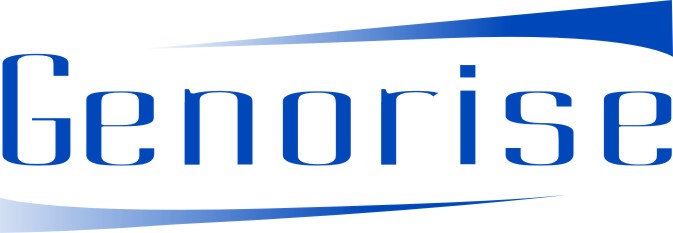






















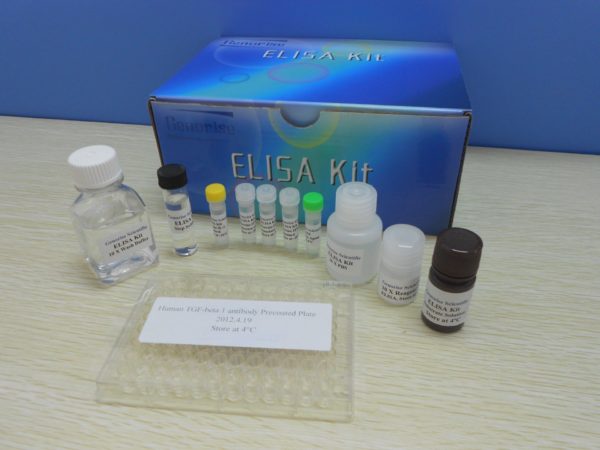
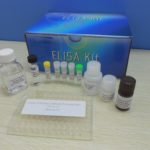
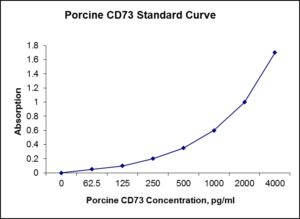
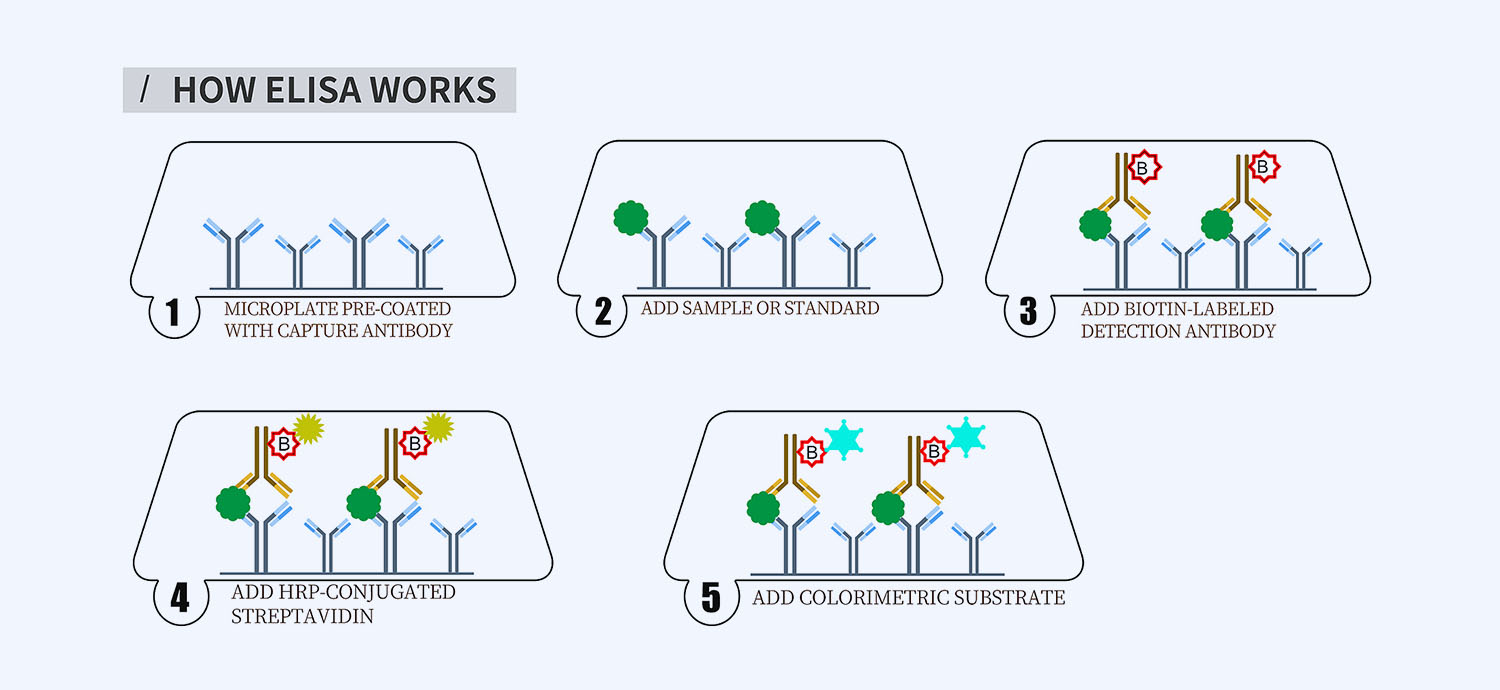
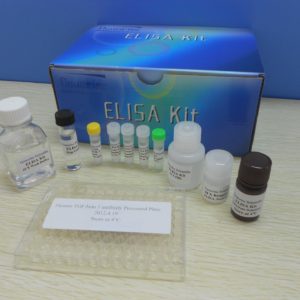

Reviews
There are no reviews yet.